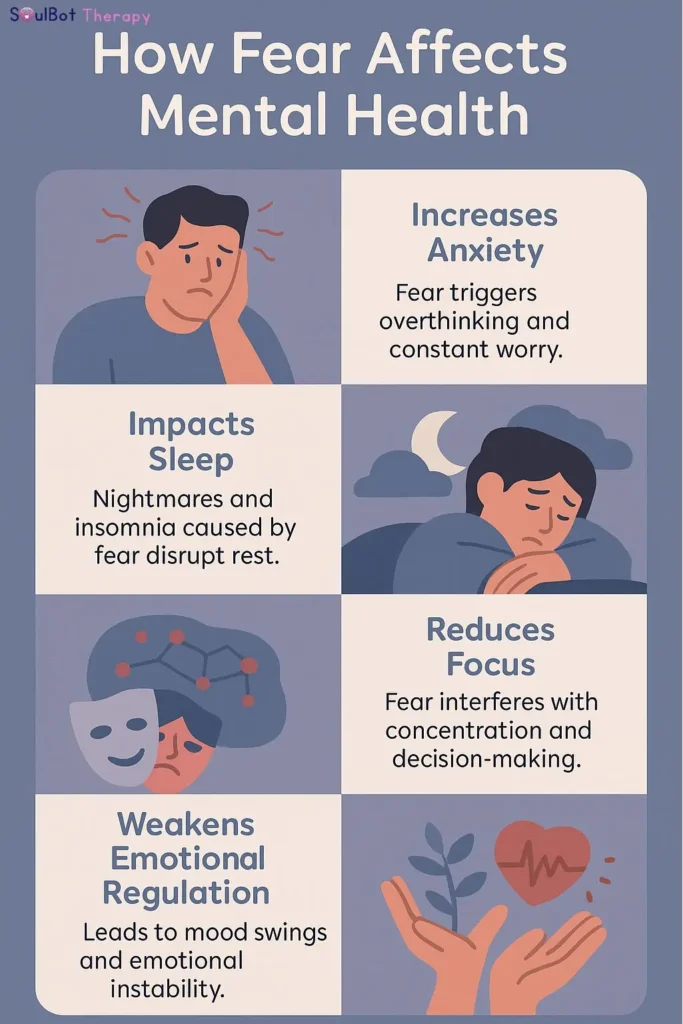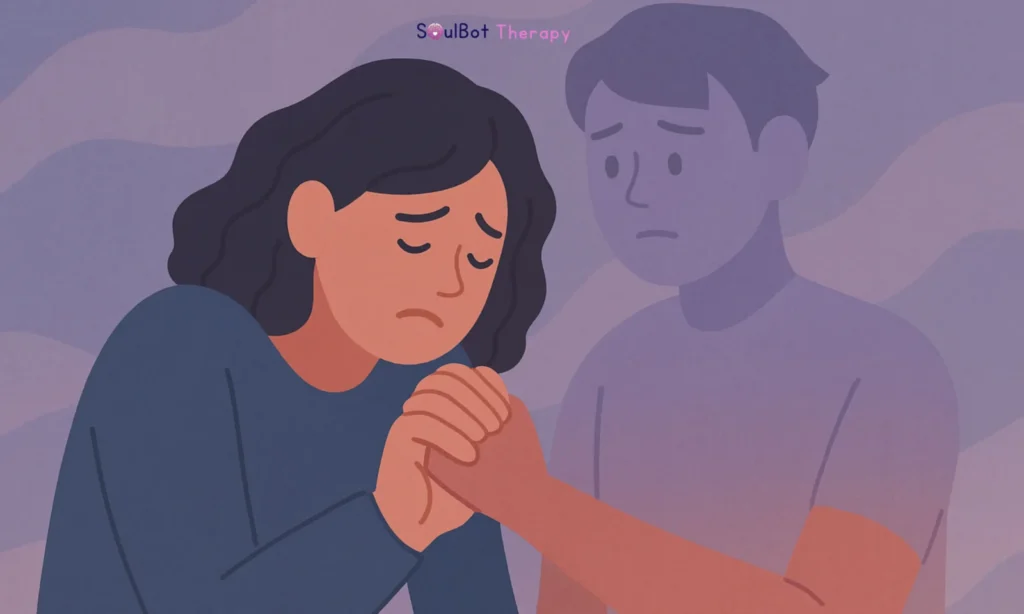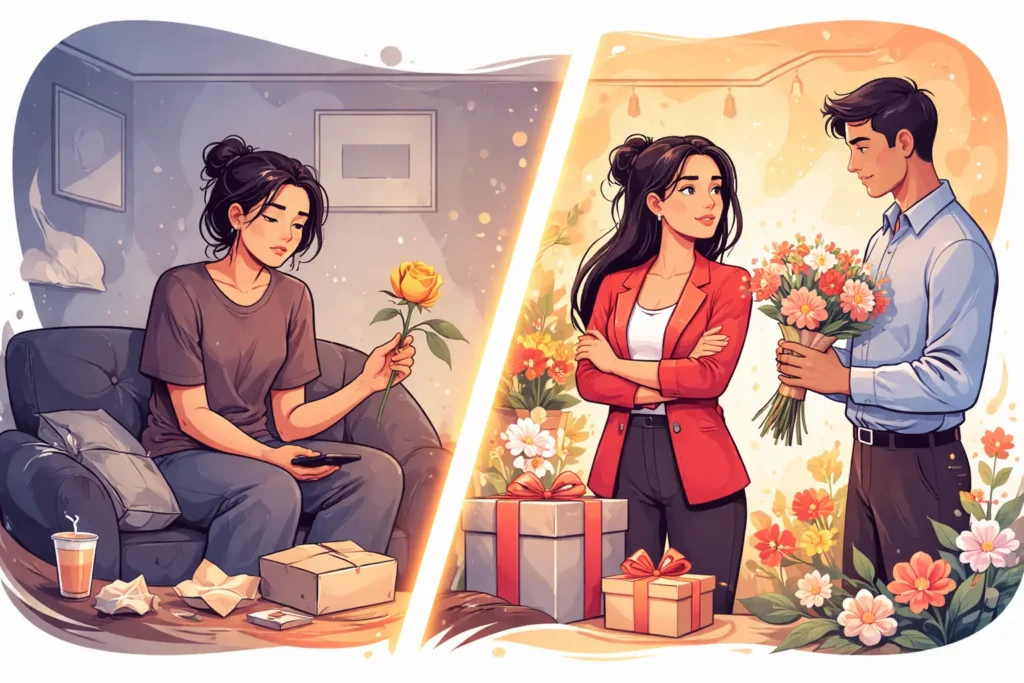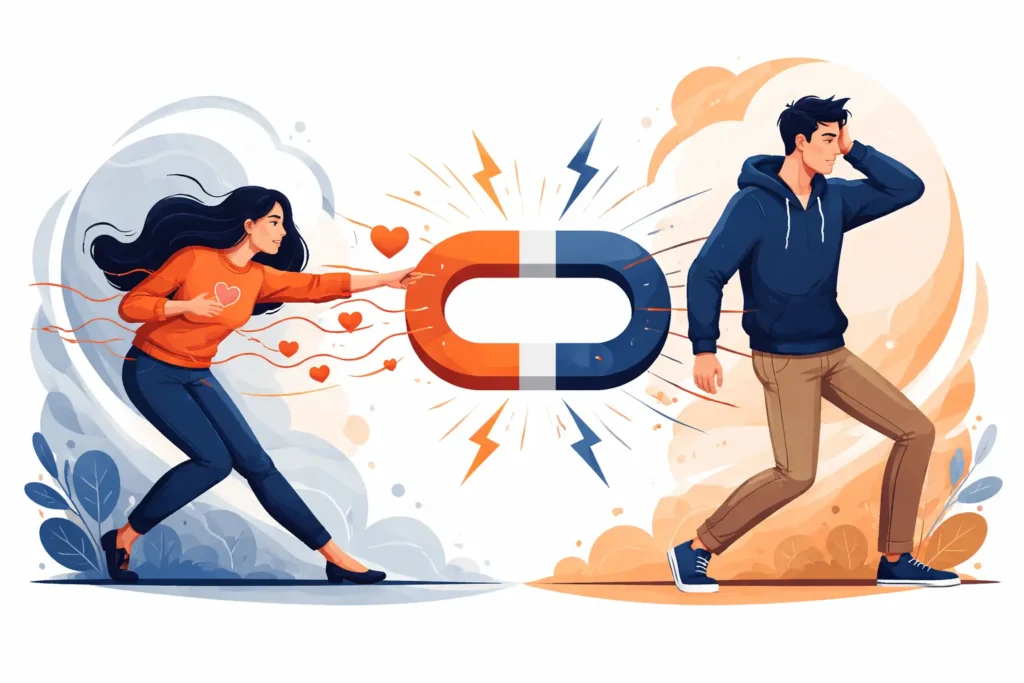It’s late at night, and you catch yourself thinking about someone you deeply care for. A sudden pang of worry hits- what if they’re not there tomorrow? Your chest tightens, thoughts race, and you feel that familiar ache of attachment. These moments aren’t just fleeting worries; they’re part of the fear of losing someone. In this guide, we’ll explore why this fear hurts so much, how it connects to your mental health, and practical strategies to cope with it.
Your attachment style and personality type can also influence how deeply you experience fear of loss. Understanding your emotional patterns through our MBTI Test can offer deeper insight into how you cope.”
What Is the Fear of Losing Someone?
Worrying about losing a loved one goes beyond simple concern; it reflects deep emotional and psychological responses rooted in attachment, love, and our instinct to stay connected.
People experiencing this fear may notice:
- ➜ Constant thoughts about the safety and presence of a loved one.
- ➜ Avoidance behaviors, such as reluctance to spend time apart.
- ➜ Anxiety about future separation or death.
This fear often overlaps with relationship anxiety, fear of abandonment, and emotional dependency in love. While it’s normal to care deeply, persistent or intense fear can interfere with daily life and relationships.
💡 SoulFact: Grief and loss affect the brain and body in many ways. They can cause changes in memory, behavior, sleep, and body function.
😔 Why Does This Fear Hurt So Much?
The pain of fearing loss stems from several psychological and emotional factors:
✦ 💔 Attachment Style: People with anxious or insecure attachment often experience heightened fear of losing loved ones. Their emotional bonds make separation feel intolerable.
✦🕰️ Past Experiences: Previous loss or trauma, like the death of a family member or a breakup, can magnify the intensity of fear.
✦🤝 Emotional Dependency: When your happiness or sense of security heavily relies on someone else, even the thought of losing them can feel catastrophic.
✦ ❓ Uncertainty & Lack of Control: Humans instinctively anticipate and manage outcomes. The fear of losing someone reminds us that we cannot control everything, and coping with grief and loss often lies beyond our control.
Is Fear of Abandonment Linked to Mental Health?
Yes, fear of abandonment frequently affects and is affected by mental health challenges. Here’s how:
- ➤ Anxiety Disorders: Experiencing continual fear of losing someone can reflect underlying generalized anxiety disorder (GAD).
- ➤ Depression: Loss or the anticipation of loss can worsen feelings of sadness, hopelessness, or low self-worth.
- ➤ Attachment and Mental Health: Studies have shown that insecure attachment styles often correlate with emotional instability, relationship anxiety, and increased vulnerability to depression.
Recognizing this link allows you to face your fear with kindness rather than criticizing yourself.
Fear of losing someone often ties back to how we give and receive love. If you’re unsure what emotional connection looks like for you, explore the Five Love Languages to identify your core needs in relationships.

How to Cope with the Fear of Losing Loved Ones?
Fear doesn’t have to control your life. These psychology-backed strategies can help you manage anxiety and find emotional balance:
1. Recognize and Label Your Feelings
Acknowledge that your fear is real and valid. Simply labeling it as “fear of losing someone” or “relationship anxiety” can reduce its intensity.
2. Reflect on Attachment and Dependency
Ask yourself:
- Am I overly dependent on this person for my happiness?
- Are my fears based on evidence or hypothetical scenarios?
Journaling can help clarify whether your emotional dependency in love is healthy or excessive.
3. Strengthen Emotional Resilience
- Practice mindfulness: Meditation and grounding exercises can reduce intrusive worries.
- Focus on what you can control: You cannot prevent all losses, but you can maintain healthy communication, self-care, and boundaries.
4. Build Support Systems
Lean on friends, family, or online support groups. Sharing your feelings helps relieve isolation and reassures you that you’re not alone.
5. Seek Professional Help
Therapy is highly effective in managing fear of losing someone, relationship anxiety, or anticipatory grief. A therapist can guide you through coping mechanisms, emotional regulation, and reframing thoughts.
💡 SoulFact: Research shows that cognitive-behavioral therapy (CBT) can significantly reduce anxiety about loss, improve attachment security, and promote healthier relationship patterns.
Common Types of Loss and Emotional Responses
| Loss Type | Feeling | How to Cope |
| Partner breakup | 😢 Sad, confused | Journal, join support groups |
| Friendship loss | 😔 Lonely | Reconnect or make new friends |
| Family estrangement | 😠 Guilt, anger | Therapy, set boundaries |
| Social circle change | 😟 Isolated | Try new hobbies or meet people |
| Death of a loved one | 💔 Shock, grief | Counseling, mindfulness, rituals |
When to Seek Help for Relationship Anxiety?
It’s time to reach out if you fear:
- ✔ Interferes with daily life or work
- ✔ Causes constant worry, panic, or obsessive thoughts
- ✔ Leads to emotional outbursts or controlling behaviors
- ✔ Triggers depression or sleep disturbances
Professional guidance, whether in-person or online therapy, can help you manage these fears effectively. Online platforms like SoulBot offer AI-guided support, allowing you to process emotions and develop healthy coping strategies at any time.
Moving Forward With Compassion
Fear of losing someone is a natural emotional response, not a personal flaw. By acknowledging your feelings, understanding their root causes, and practicing coping strategies, you can navigate this fear without letting it dominate your life.
Remember: your mental health, emotional independence, and attachment awareness are as important as your bonds with loved ones. Approach your fear with curiosity, self-compassion, and intentional support.
👉 Need guidance processing fear and relationship anxiety? Chat with SoulBot, your AI mental health coach, for personalized support anytime. 







